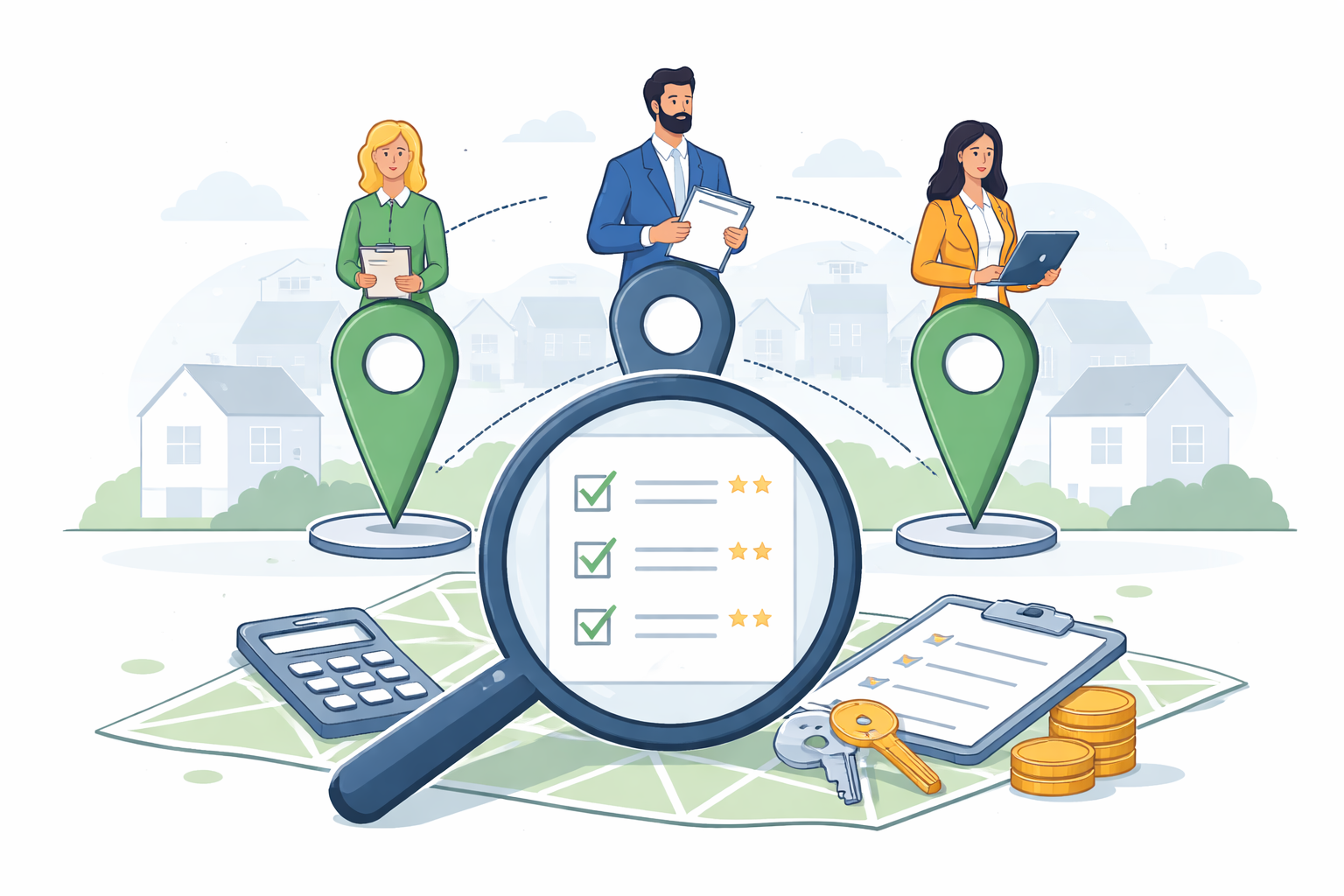Embarking on the journey to buy a home is one of life's most exhilarating milestones, filled with anticipation and dreams of the future. Yet, it unfolds as a complex adventure, laden with decisions that could shape your financial and personal life for years to come. The process intertwines with excitement and the daunting reality of navigating a significant financial transaction, arguably the largest most will undertake in their lifetime. This intricate dance between joy and pragmatism underscores the paramount importance of being well-prepared.
Preparation transcends beyond mere financial readiness; it involves a deep dive into understanding what you truly need from a home, the lifestyle you aspire to, and how these fit within the tapestry of your financial reality. The right preparation equips you with the knowledge to sift through the market's noise, enabling you to pinpoint a home that not only resonates with your heart but also makes sense from an investment standpoint. In a realm where the scales seem tipped in favor of sellers and the market ebbs and flows with unpredictable dynamics, the well-prepared buyer stands as a beacon of clarity and purpose.
The journey to homeownership is fraught with potential missteps, where a single oversight could lead to a cascade of compromises or financial setbacks. Recognizing the common pitfalls that ensnare many homebuyers is the first step toward avoiding them. Armed with information, insight, and the right allies, navigating the complexities of buying a home transforms from a daunting task into a manageable, even enjoyable, journey. This guide aims to illuminate the path, highlighting the common mistakes home buyers make and, most importantly, how to avoid them, ensuring you make a sound purchase decision that aligns with both your heart's desires and your financial well-being.
Pre-Purchase Preparation
Embarking on the home-buying journey without adequate preparation is akin to setting sail without a map. The foundation of a successful home purchase lies in thorough pre-purchase preparation, encompassing both financial readiness and comprehensive research. Here, we delve into the crucial steps of research and financial analysis, alongside the pivotal decision of selecting the right mortgage.
Research and Financial Analysis
-
The necessity of understanding personal finances and getting pre-approved for a mortgage.
Before the search for a new home begins, a deep dive into your financial situation is essential. Understanding your assets, debts, and credit score forms the basis of how much you can afford. Securing mortgage pre-approval, as opposed to mere pre-qualification, gives you a clear picture of your budget and strengthens your position when making an offer, showing sellers you are serious and financially capable. -
The value of thorough research on the neighborhood and local amenities.
The perfect home extends beyond its four walls; it includes the community and the conveniences around it. Investigating the neighborhood’s safety, the quality of local schools, accessibility to public transport, and proximity to essential amenities can influence your living experience and the home’s future value. Understanding zoning laws and future area developments can also provide insight into the neighborhood’s growth trajectory and potential disruptions.
Choosing the Right Mortgage
-
The importance of loan pre-approval versus pre-qualification.
While pre-qualification gives you an estimate of how much you might be able to borrow, pre-approval goes a step further by evaluating your financial background and creditworthiness. This not only affirms your borrowing capacity but also places you a step ahead in the competitive real estate market, showing sellers that your offer is backed by a lender’s commitment. -
Benefits of consulting with an independent finance broker.
Opting for a mortgage isn’t just about accepting the first offer from a bank. Independent finance brokers offer the advantage of choice and flexibility, presenting a range of loan options from various lenders that fit your unique financial situation. Their expertise can guide you to the most advantageous deal, potentially saving you thousands over the life of your loan and tailoring the mortgage terms to your specific needs.
The journey to homeownership is paved with critical decisions, starting with the meticulous preparation before the house hunt even begins. By grounding your search in solid financial understanding and thorough research, you set the stage for a purchasing process that not only leads to finding your ideal home but also securing it on terms that align with your financial health and lifestyle aspirations.
Understanding Market Dynamics
The real estate market is an ever-evolving landscape, influenced by a myriad of factors including economic indicators, interest rates, and supply and demand dynamics. For home buyers, navigating this terrain requires a nuanced understanding of how these factors can impact their purchasing power and the value of their investment. It's not just about the right property; it's about the right time, price, and alignment with personal circumstances.
The Influence of the Market
-
Why one's personal needs should outweigh market timing.
While it's tempting to try and 'time' the market to snag a deal or sell at the peak, such strategies can be fraught with risk for the average buyer. Your decision to purchase a home should primarily be guided by personal needs, financial readiness, and long-term goals rather than speculative market trends. The 'perfect' market conditions may never align with the 'right' time for you to buy based on your life situation, potentially causing you to miss out on suitable properties that meet your needs now. -
The risks of waiting for market conditions to change.
Holding off on buying a home in anticipation of better market conditions – whether it's lower prices or interest rates – can backfire. Market predictions are inherently uncertain, and delays can lead to missed opportunities. Prices might rise, interest rates could fluctuate, and the inventory of available homes may decrease, leaving you with fewer options. The cost of waiting, both financially and in terms of life milestones, can often outweigh the potential benefits of timing the market.
Budget Considerations
-
The dangers of stretching beyond one's financial means.
In the heat of a competitive market, it's easy to feel pressured into stretching your budget to secure a home. However, overextending financially can lead to stress, limit your ability to save for other goals, and expose you to risk if your financial situation changes. A sustainable budget is one that accommodates not just the mortgage payments but also maintenance, utilities, and other homeownership costs, while still allowing for savings and lifestyle expenses. -
Allowing for future financial changes and uncertainties.
Life is unpredictable, and financial situations can change – sometimes suddenly. Job loss, health issues, or major life events can impact your ability to meet mortgage commitments. When setting your budget, it's prudent to factor in a buffer for unforeseen circumstances. This means considering whether you can still afford your home if interest rates rise or if your income decreases, ensuring long-term financial security and peace of mind.
Understanding market dynamics and how they relate to your personal and financial situation is crucial in making informed home buying decisions. By prioritizing personal needs over trying to outguess market trends and carefully considering your budget in light of potential future changes, you can navigate the complexities of the real estate market with confidence, making a purchase that suits both your current and future needs.
Emotional and Practical Buying Mistakes
The journey to homeownership is as much an emotional process as it is a financial and practical one. Emotional and practical buying mistakes can easily derail even the most meticulously planned home-buying process. Recognizing and mitigating these mistakes are crucial steps toward ensuring a sound investment and a happy home life.
Emotional Attachments
-
The problem with falling in love with a property.
It’s easy to become emotionally attached to a dream home that seems to tick all the boxes. However, this attachment can cloud judgment, leading to overlooking potential issues or making financial decisions that are not in your best interest. Emotional investment in a property can also weaken your negotiation stance, potentially resulting in paying more than the property is worth. -
Keeping emotions in check during viewings and negotiations.
While it’s important to find a home that feels right, maintaining a level of detachment during viewings and negotiations is crucial. Approaching the process with a critical eye and a calm, clear mind helps in making rational decisions based on facts rather than feelings. This approach can also empower you to walk away from a bad deal, knowing that another opportunity will come along.
Overlooking Key Factors
-
Price vs. value — understanding the difference.
The cheapest option isn’t always the best value. A low price can be enticing but may reflect underlying issues, such as a poor location, structural problems, or a lack of amenities. Conversely, a higher-priced home might offer better value through its location, features, and potential for appreciation. Evaluating a property’s price should always be in the context of its overall value to you as the buyer, considering both current benefits and future resale potential. -
The necessity of having protective clauses in the contract.
Ensuring that the contract of sale includes clauses that protect your interests is essential. These might be conditions related to financing, inspections, or the sale of your current home. Such clauses provide a safety net, allowing you to back out of the deal under specific circumstances without significant financial loss. Overlooking the importance of these protective measures can lead to being locked into a purchase that may not be in your best interest after further information comes to light.
Navigating the emotional waters of buying a home while keeping a practical mindset is a balancing act. By recognizing the potential pitfalls of emotional attachments and the importance of thoroughly evaluating a property's true value, buyers can make more informed decisions. Coupled with the strategic use of protective clauses in the contract, these approaches safeguard against common buying mistakes, leading to a more satisfactory and secure home buying experience.
Post-Purchase Realities
The final step of purchasing a home marks the beginning of a new set of responsibilities and financial considerations. Many first-time homebuyers focus intently on the buying process but may not fully anticipate the ongoing costs and potential surprises that come with homeownership. Understanding and preparing for these post-purchase realities is crucial to ensure financial stability and enjoy the rewards of your new home without undue stress.
Underestimating Ownership Costs
-
Budgeting for the full costs of buying and maintaining a home.
Beyond the down payment and mortgage payments, homeownership involves a variety of ongoing expenses that can significantly impact your budget. Property taxes, homeowners insurance, homeowners association (HOA) fees, and routine maintenance are all integral parts of the financial equation. Prospective buyers should create a comprehensive budget that accounts for these costs to assess the true affordability of a home. This proactive financial planning helps in avoiding the shock of unforeseen expenses and ensures a smoother transition to being a homeowner. -
Preparing for unexpected expenses after moving in.
Even with a thorough home inspection, new homeowners often encounter unexpected repairs and maintenance issues after moving in. Appliances break down, roofs leak, and systems fail – sometimes all too soon after purchase. Setting aside an emergency fund for home repairs can mitigate these surprises, ensuring that you're prepared to handle issues as they arise without derailing your finances. Financial experts often recommend saving 1-3% of your home’s purchase price annually for maintenance and repairs. This fund acts as a buffer, protecting your budget and peace of mind as you settle into your new home.
The transition from buyer to homeowner is filled with excitement and new challenges. By accurately budgeting for the full costs associated with homeownership and preparing for the inevitable unexpected expenses, you can ensure that your home remains a source of comfort and security, rather than financial strain. These post-purchase considerations are crucial for maintaining not only the physical condition of your home but also your financial health and overall well-being as a homeowner.
The Role of Professional Guidance
Navigating the complex terrain of the real estate market requires more than just an understanding of your needs and financial readiness. It calls for professional guidance to steer through the nuances of buying a home. This section highlights the critical role that expert advice plays in the home-buying journey, debunking common misconceptions about real estate agents and underscoring the potential pitfalls of going through the process unaided.
The Value of Expert Advice
-
Misconceptions about real estate agents' roles and the benefits of hiring a buyer’s agent.
A common misconception among homebuyers is viewing all real estate agents through the same lens, not recognizing the distinct advantage that a buyer’s agent brings to the table. Unlike selling agents, who represent the interests of the seller, a buyer’s agent acts solely on behalf of the buyer. This distinction is crucial. A buyer’s agent focuses on finding you the best property at the best price, offering unbiased advice, and providing access to a wider array of listings, including those not yet on the market. They navigate negotiations, paperwork, and potential hurdles, leveraging their expertise to advocate for your interests. The benefits of hiring a buyer’s agent extend beyond convenience, offering a strategic advantage in securing your ideal home. -
How going solo can be a major pitfall in the home-buying process.
Many buyers, especially first-timers, underestimate the complexities of the home-buying process and overestimate the savings of not engaging a buyer’s agent. Going solo can seem like a way to cut costs but often leads to overlooked details, inadequate negotiations, and ultimately, costly mistakes. Without the seasoned insight of a professional, buyers may end up paying more for a property, missing out on better opportunities, or getting entangled in legal or financial issues post-purchase. The guidance of a buyer’s agent can save not just money but also time and stress, providing peace of mind that every aspect of the purchase is handled with professional care and due diligence.
The journey to finding and purchasing a home is fraught with decisions that carry significant financial and emotional weight. In this landscape, the value of professional guidance cannot be overstated. A buyer’s agent offers more than just access to properties; they bring a wealth of knowledge, experience, and negotiation skills to ensure you make a well-informed purchase that aligns with your long-term goals. As you embark on this journey, consider the role of expert advice not as an optional luxury, but as an essential component of a successful home-buying strategy.
Conclusion
The journey to homeownership is a path laden with potential pitfalls, each carrying the weight to significantly impact the outcome of what is likely the most substantial financial decision of your life. From the initial stages of research and financial preparation to navigating the complexities of market dynamics, budget considerations, and post-purchase realities, the road is fraught with challenges that demand careful attention and strategic planning. Moreover, the emotional rollercoaster and practical hurdles encountered along the way underscore the necessity of maintaining a balanced perspective and making informed decisions.
Central to avoiding these common mistakes is the recognition of the invaluable role that professional guidance plays in the home-buying process. Misconceptions about the role of real estate agents and the tangible benefits of enlisting the services of a buyer’s agent can lead many to traverse this journey solo — a decision that often results in avoidable missteps. The expertise, insight, and advocacy provided by a buyer’s agent are indispensable resources that not only streamline the purchase process but also position you to make the most of your investment.
In light of these considerations, we strongly encourage prospective homebuyers to seek the expertise and support offered by BuyerAgentFinder. Our platform connects you with trusted and experienced buyer’s agents who are committed to representing your best interests, navigating the complexities of the real estate market, and guiding you to a successful and satisfying purchase.
Don’t navigate the intricate process of buying a home alone. Contact BuyerAgentFinder today to find a trusted buyer’s agent who can help you avoid common home-buying mistakes and ensure a smoother, more informed journey to homeownership. Whether you’re a first-time buyer or looking to expand your property portfolio, our experts are here to provide the guidance and support you need to make confident, well-informed decisions. Connect with us now to take the first step toward securing your dream home with confidence and peace of mind.















